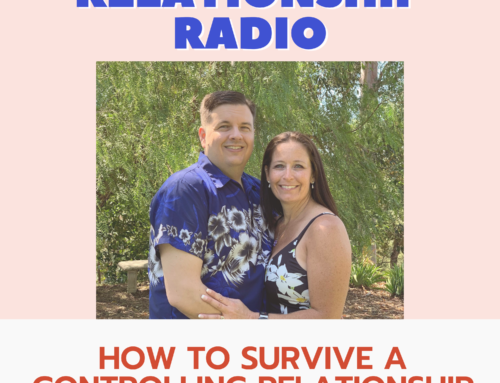If you have a dominating and controlling husband, then this article is for you. If you’re trying to find your independence and feel valued for who you are as a person, we want to help. But, if you are looking for an article on how to control your husband, bow out now–that’s not what we’ll be talking about here. Although, you could benefit from some of the other articles we have at Marriage Helper, because control never works and will destroy your relationship. But first, for those women looking for how to define boundaries, speak up for themselves, and feel like an equal in their relationship, that’s precisely what this article can help you with. It’s not something we can solve in just this video. But I can tell you things that you can begin doing right now.
My name is Kimberly Holmes, and I am the CEO of Marriage Helper. I have worked with many relationships, and we at Marriage Helper have worked with thousands of relationships that have been affected by a controlling husband. But today, we’re going to be talking about when you, as the wife, feel controlled and dominated and some things that you can do. But first, I want you to know that I will give you a free resource at the end of this article. So be sure that you stick around. It’s a free marriage strategy call that you can have with someone on our team to see what resources you can use to help you move forward. I’ll tell you more about that later.
But most importantly, if you’re in a situation where you are not safe, where you are physically or mentally or emotionally unsafe, you fear being harmed, or you are being hurt, you need to get to safety immediately. And I highly encourage you to immediately contact the domestic abuse hotline because nothing good will come if you are being hurt right now. If you’re physically injured or being traumatized emotionally or mentally, be sure that you get safe first. Absolutely. First and foremost, I don’t think I can say it enough. Make sure that you are safe.
When you are in a situation with a controlling husband, here’s how it looks.
Let me explain through a story. I worked with a couple several years ago, where the husband was very controlling. He told the wife what she could eat, when she could eat it, and whether or not she could have a job–he told her she didn’t need one. He wouldn’t let her have access to the finances, and told her how she should vote. Basically, he told her how she should think, but he was very nice.
He wasn’t hurting her physically or anything like that. But how he would treat her or say things stripped her of her identity and made her say, “I don’t even know who I am anymore after being married for 20 years. I don’t even know what to do without my husband. I don’t even know what my life would be like without him.” She believed that in order to be loved by him, she needed to do what he wanted her to do, say what he wanted her to say, and be who he wanted her to be. So that he wouldn’t leave her; that’s control.
If you are in that situation and you’re saying, “yeah, my husband tells me who I should spend time with and how much money I get to spend a week.” Control is where you feel trapped or stuck, and when you tell your husband how you feel, he doesn’t listen. All he wants is for you to do what he wants you to do.
Why do people control?
Well, you have to ask yourself this question first. Do you believe that your husband is a good person who is currently just in this rhythm of having destructive behaviors? Or do you feel like your husband is a bad person with these destructive behaviors? Most of the time, controlling people are really good people who have been incredibly broken by something that has happened to them.
And so, most of the time, our need for control comes out of a time when we had no control. Most of the time, when someone has controlling tendencies, you can look back in their life and see that something traumatic happened to them. Maybe it was their parents divorcing at a young age, and they felt like they had no control over what was happening to them. Perhaps it was something that occurred in a career. Something terrible that happened, and they felt like they had no control. Maybe it was an actual physical thing that happened to them that led to no control.
So, there’s typically something that makes the person feel like they had no control, and now they want control. And most of the time, they don’t even realize they’re doing it. They think they have good intentions; believe that they’re protecting people. They feel that they’re doing the best thing, and they don’t realize how their actions affect other people.
So maybe that can help you understand from a different perspective for a minute. What may be leading to some of these behaviors? Ask yourself, is your husband a good person, or is he a bad person? Is he someone who is just so hurtful to himself and others that he is a bad person with bad motives, bad intentions, you don’t feel safe around him, and so you don’t even want to make the marriage work? 99% of the time, it’s going to fall into: my husband’s a good person, and he was broken by something that happened in his past.
What can you do if you have a controlling husband?
Honestly, there’s little that you can do to change your husband’s behavior right now. Most of the time, they will have to first see that they are a controlling husband, and then want to do something to change it. And then thirdly, some of the time, the majority of the time, I would say, get some therapy to overcome where those controlling habits and tendencies are coming from.That needs to happen long-term, and we’re going to get to that in just a minute, but there are things that you can begin doing now for yourself.
You can, and absolutely should, have the right to say no. You have the right to say, “I’m going to eat what I want to eat. I deserve access to our finances. I’m not going to be a doormat. I’m not going to let you be my father and tell me what to do. I will be your equal, and we work on this together.” You have that right. Now, you might be intimidated to say those things to your husband right now, especially if you’ve been married for 10 or 20 years and never have. And you could think, “there’s no way he’s going to respond well to that.” And at first, he may not.
It is a psychological principle that when things begin to change like that in a relationship, things will be a little bit worse before they get better. I understand it’s probably going to be very different in your relationship with a controlling husband. But if your husband says, “you know, you need to eat salads every single day.” It’s ok for you to say, “you know what? I’m going to eat a hamburger today.” And he may very well say, “what in the world?” You can’t do whatever it is. It could be that you say, “you know what? I’m going to have the friends that I want to have.”
Assuming that these friends are good for you, right? Like we’re not going to get carried away with all of this. “Well, then I’m just going to do whatever I want to do and not care how any of it affects other people because I’m not going to be controlled.” Let’s be reasonable adults here. I’m not saying to go and get involved with the mafia. I’m saying that if you just feel like your controlling husband is trying to limit your access to friends, limit your ability to work, limit your access to finances, you have a right to that, and you don’t need to be controlled in that way.
Sometimes control looks less intimidating.
Sometimes control looks like your husband just wanting you to do what he wants to do now—not listening to your feelings. And you have the right to say, “you know what? I don’t want to do that today.” It can look like manipulation. If you don’t go along with this with me, if you don’t go on this dinner with me with business friends, then I’m going to humiliate you. If you don’t keep the house clean, I’m going to take your allowance down. Those are both actual examples that I’ve heard.
So control can look different in different ways. But the bottom line of what I’m trying to get to is you have the right to say, “I understand your desires, and that’s just not what I want to do today. That’s not what I want to do tomorrow” You have that right. You don’t have to be a doormat. Often, wives see this in the middle of a separation or a divorce where the husband says, “you need to do this. You need to move out of the house, you need to split, or you need to get less alimony.” Whatever it is, they try to control out of intimidation, out of tactics like that. And guess what? As the wife, you can say, “I don’t need to do that. I’m not going to do that.” You have the right.
Now, again, this isn’t about becoming the complete opposite and you becoming the controlling person. You don’t control a controlling husband with control. The best way to control being controlled is by being kind, gentle, caring, empathetic, and knowing that you have worth and value, and you don’t have to do something just because someone else is telling you to. You get to make your own decisions.
This is a vast topic, though.
There is so much that goes into it. And honestly, the only way that long-term your marriage is going to change fundamentally, and your husband become less controlling and more equal with you is for you both to realize this. For you both to go through what we do in our workshops. We talk about how relationships should happen, and how couples should work together for the people who have a controlling husband, which is a lot of couples. I have been one of them in the past where control has been an issue. Often, you don’t realize that the controlling husband doesn’t necessarily realize that they are controlling.
And so the best thing you can do is both of you go through an experience where both of your eyes are opened, especially your husband. Because that’s the only way he’s going to begin to see that he needs to change his behavior. When he sees it, how it should be when he hears it from a reputable source, that is the best thing that can happen. And we’ve seen fantastic success from people who’ve come through our workshop when there has been control in the marriage.
So, what are the next steps for you?
First, book that next step strategy session with one of our client relations reps. They will tell you more about our coaching. Our coaching can be beneficial to you in this situation to understand how to approach your spouse, stand up for yourself, and understand how to apply that to your life. And then our Save My Marriage Course. If you’re going to give it one final shot before giving up, but you don’t want to get him involved right now. Our Save My Marriage Course is the best thing you can do.
Ultimately, everything is about getting to our workshop because we know marriage transformation happens there (with over a 70% success rate). Even if you have a controlling husband, we would love to see you and your husband there. But, book that call; it’s free. They want to hear your story and what’s happened; what’s gone on. And then they can guide you to what the next best step for you is right now. We believe there’s hope for your marriage. We want to show you how to grasp that hope and apply it to your own life. Let us show you how.
For more Marriage Helper videos, subscribe to our YouTube channel.





